Quantitative Microbial Physiology and Ecology (QMPE)
Name:Quantitative Microbial Physiology and Ecology (QMPE)
Title:The Prestigious Scientific Award Unveiled in China for the First Time! Inaugural QMPE 2025 International Conference Kicks Off in Shenzhen
Date:May 12-16
Add:No. 2600, Keyuan South Road, Nanshan District, Shenzhen, Guangdong Province, China

The first Quantitative Microbial Physiology and Ecology (QMPE) Conference, themed 'Quantitative Microbial Physiology and Ecology,' was successfully held in Shenzhen from May 12 to 16. The event brought together over 100 leading scholars and young researchers from 35 universities and research institutions across 10 countries, including China, the United States, the United Kingdom, France, the Netherlands, Switzerland, Italy, Israel, Japan, and India.
The conference aimed to establish a high-level academic exchange platform, fostering cross-border and interdisciplinary collaboration to advance cutting-edge research and share scientific insights. Additionally, it sought to build a multi-tiered talent development system, cultivating the next generation of leaders in the field.
The conference was hosted by the Shenzhen Institute of Advanced Technology (SIAT), Chinese Academy of Sciences."
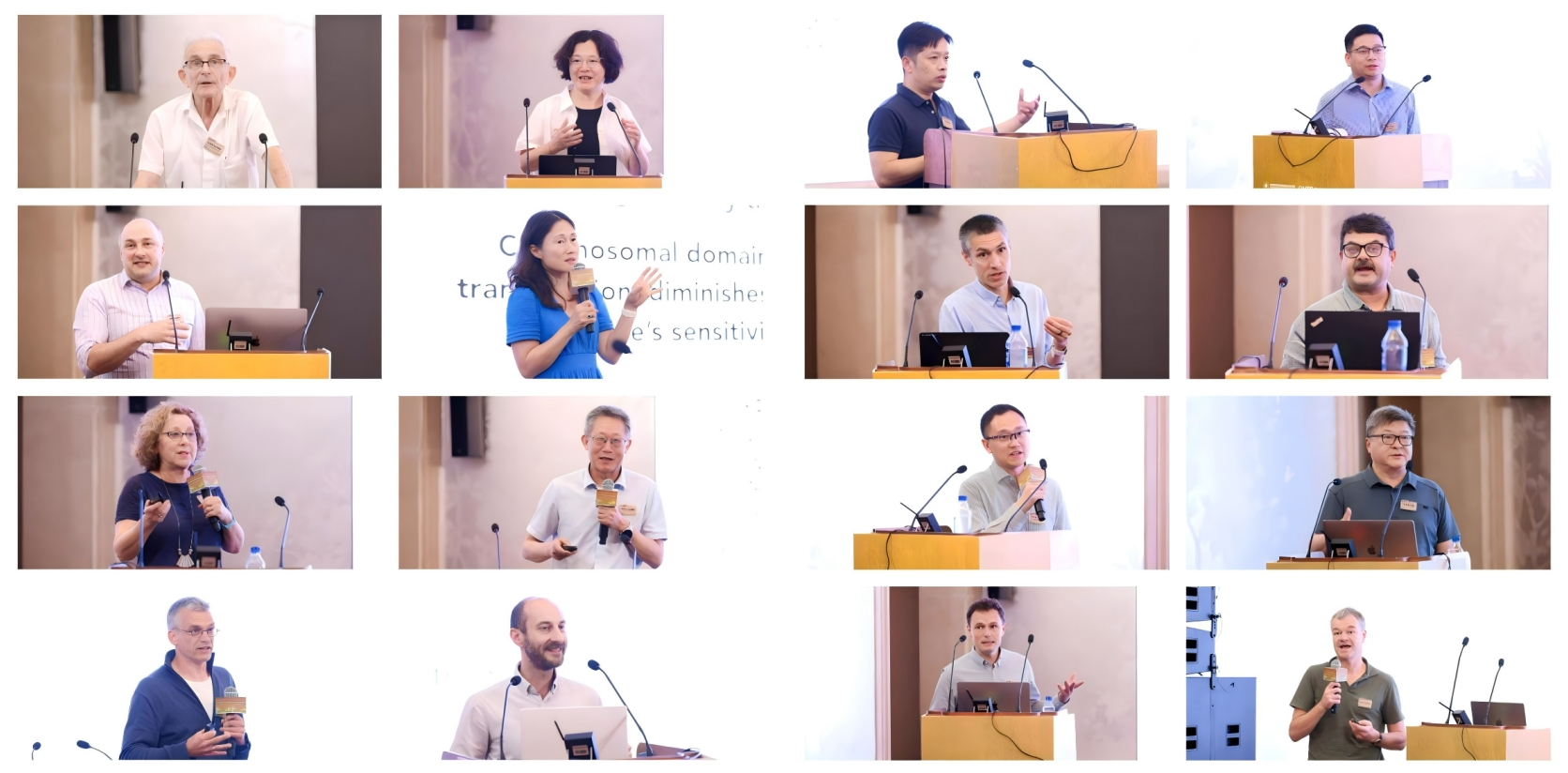
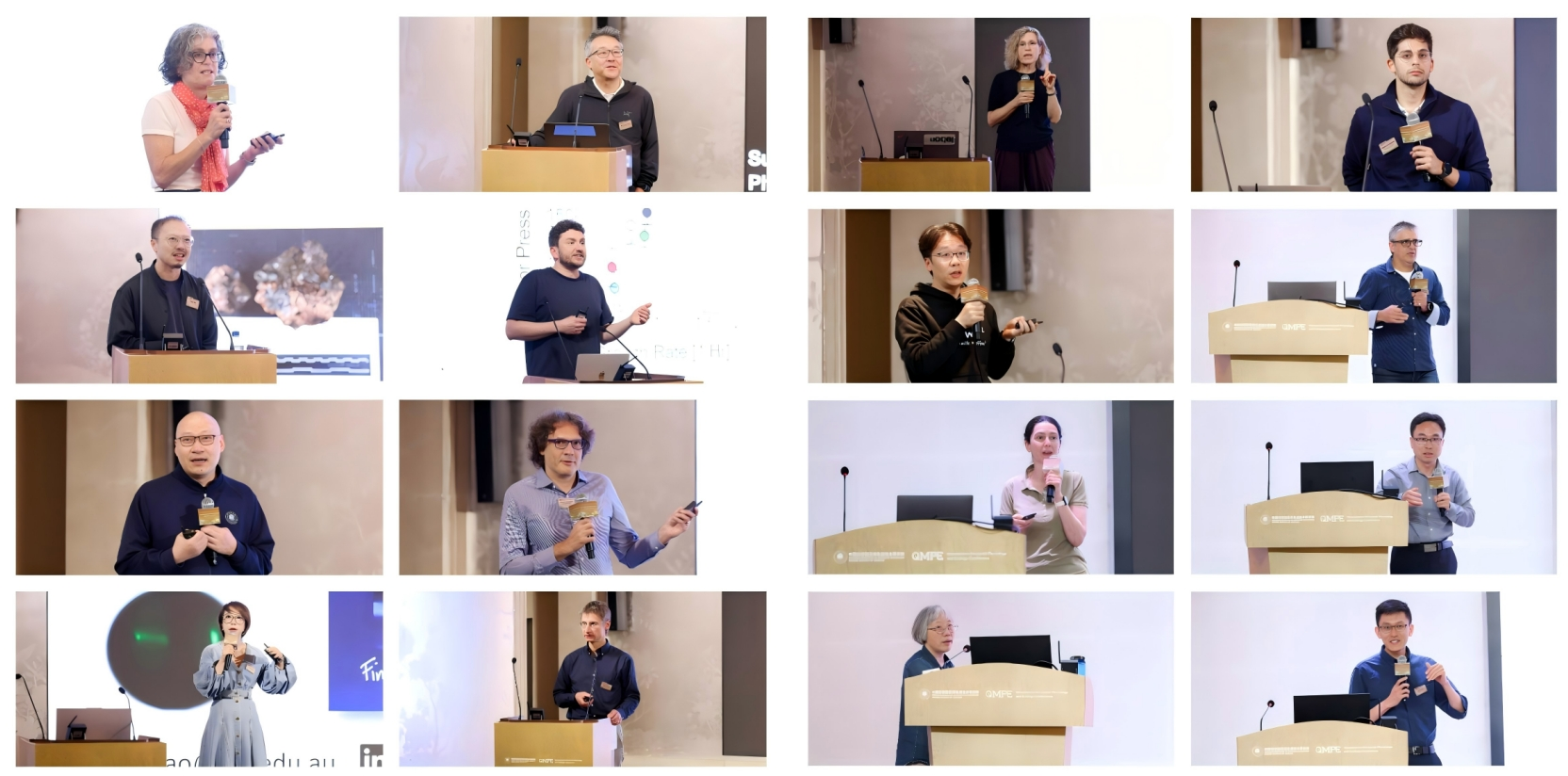
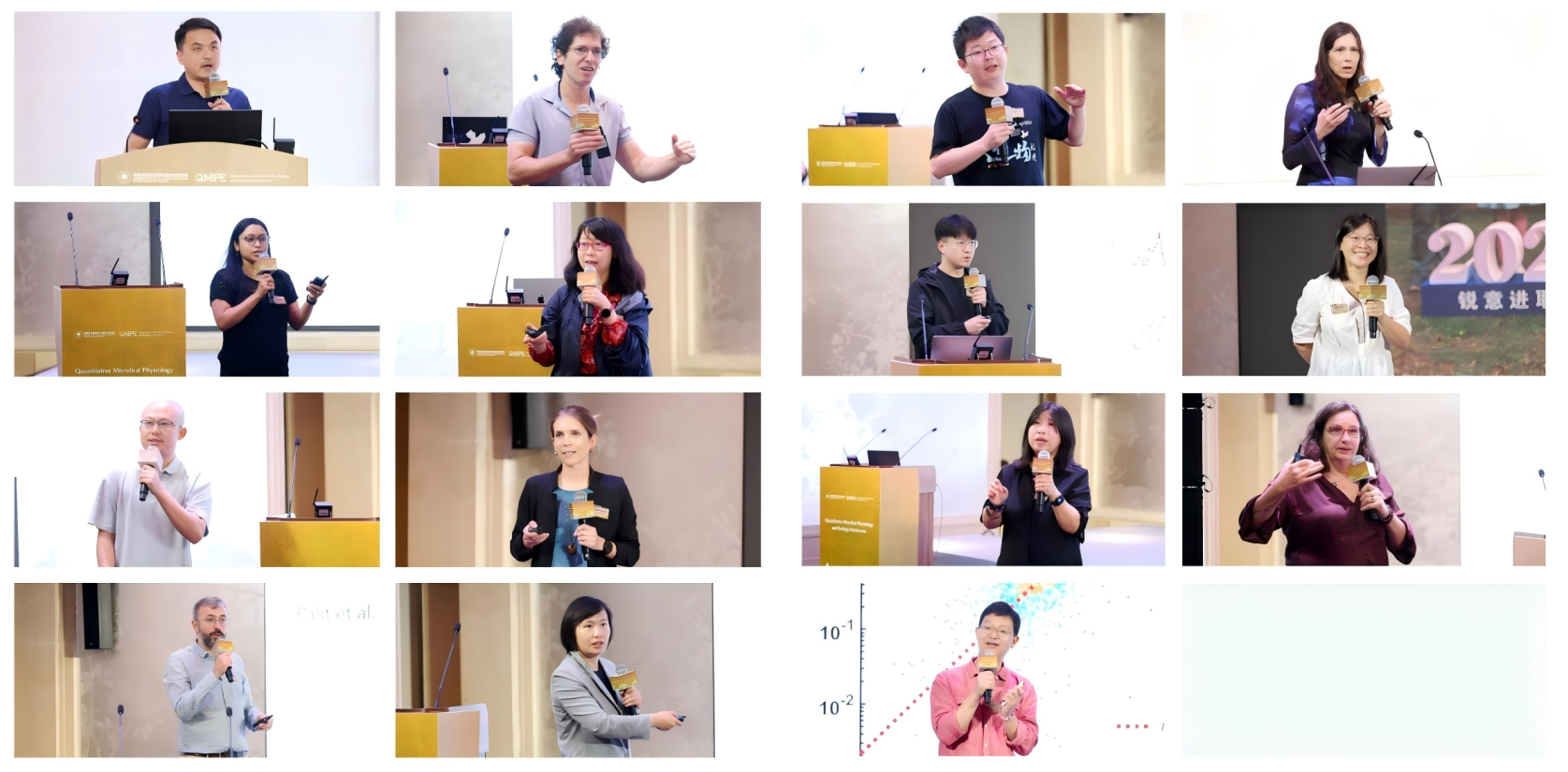
Invited Speakers
Notably, as a special highlight of the conference, the second Charles E. Helmstetter Prize was awarded in China for the first time. Named after Charles E. Helmstetter, the pioneer of modern bacterial cell cycle research, this international accolade recognizes groundbreaking contributions in bacterial cell cycle studies, aiming to advance fundamental scientific inquiries including bacterial proliferation regulation and division timing control.
Established in 2022 through the joint initiative of eminent microbiologists, the prize was co-founded by distinguished scholars such as Professor Arieh Zaritsky (a trailblazer in microbial dynamics from Ben-Gurion University of the Negev, Israel) and Professor Vic Norris (Emeritus Professor of Systems Biology at Université de Rouen, France). The award committee is chaired by Researcher Liu Chenli of SIAT.
Professor Arieh Zaritsky, co-founder of the Helmstetter Prize, remarked: "Professor Helmstetter's seminal research spanning the 1960s through the turn of the century not only laid the cornerstone for modern bacterial cell physiology but also established an enduring academic paradigm. This eponymous award stands as a perpetual tribute to his revolutionary contributions to bacterial cell cycle research."
The 2025 Helmstetter Prize was conferred upon two preeminent scientists for their transformative work in microbial physiology: Professor Nancy Kleckner of Harvard University and Professor Nathalie Q. Balaban of the Hebrew University of Jerusalem.
Professor Nancy Kleckner, member of the U.S. National Academy of Sciences and Harvard's Herchel Smith Professor of Molecular Biology, has made seminal discoveries in transposable elements that led to her elucidation of chromosomal replication mechanics, including the identification of SeqA—a pivotal protein regulating DNA replication initiation. Her paradigm-shifting work on chromosome replication and meiosis has fundamentally advanced our understanding of bacterial cell cycles.
Professor Nathalie Q. Balaban, renowned biophysicist and systems biologist at Hebrew University's Racah Institute of Physics, has pioneered biophysical approaches to decipher bacterial stress responses under antibiotic challenges. Her systematic revelations of bacterial antibiotic resistance mechanisms provide novel strategies against global antimicrobial resistance.
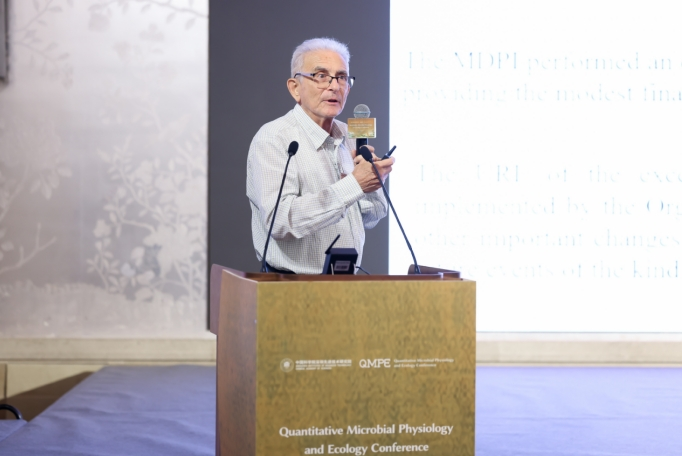
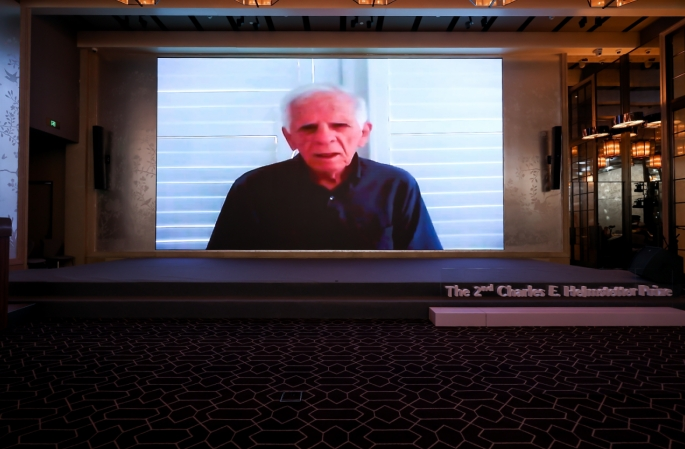

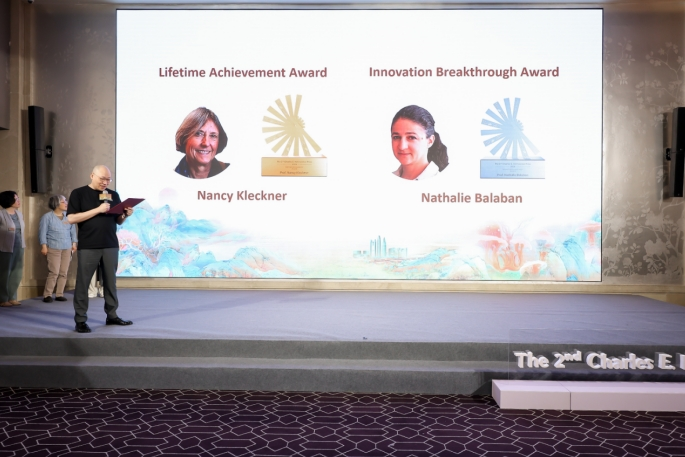
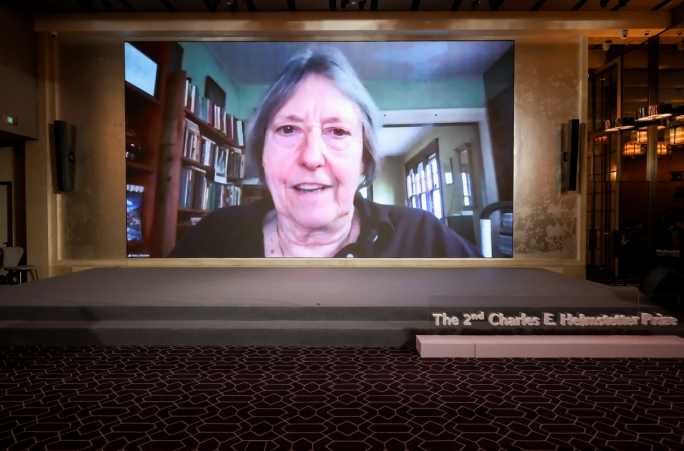
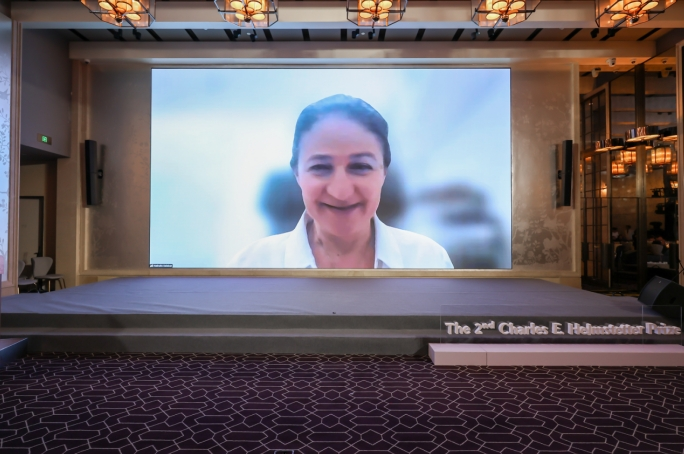
Dr. Liu Chenli, Chair of the Award Committee, emphasized: "The laureates exemplify Professor Helmstetter's scientific ethos of 'fundamental research driving transformative breakthroughs' through their interdisciplinary innovations. This recognition celebrates not only their scholarly achievements but also the enduring legacy of our field's foundational thinkers." The ceremony featured a special virtual dialogue with Professor Helmstetter, adding unique scholarly gravitas to the event.
Microbial physiology and ecology, as a cutting-edge interdisciplinary field that deeply integrates life sciences with quantitative sciences, employs high-throughput single-cell measurements, multi-omics technologies, and mathematical modeling to systematically elucidate the quantitative principles governing microbial physiological responses and ecological interactions. This discipline provides innovative theoretical support for addressing national strategic needs in environmental governance, healthcare, and synthetic biomanufacturing.
As a cornerstone of modern molecular and cell biology, microbial physiology and ecology has exerted profound influence across diverse areas including microbial growth and replication, microbial interactions, and synthetic biology, with significant advancements achieved in recent years. Building upon these groundbreaking achievements, the conference invited a total of 47 speakers from around the world, including 16 female scientists. Participants engaged in comprehensive academic exchanges and scientific exploration centered on themes such as "spatiotemporal regulation of microbial growth and division," "microbial responses and adaptation in changing environments," and "ecology and evolution of microbial communities." These discussions contributed international expertise to advancing methodological innovation, fostering interdisciplinary integration, and deepening quantitative research in microbial physiology.
The conference received support from the American Society for Microbiology (ASM), Agilent Technologies, Bruker Corporation, Shenzhen Futurui Technology Development Co., Ltd., the National Innovation Center for Biomanufacturing, and the Shenzhen Synthetic Biology Association.

